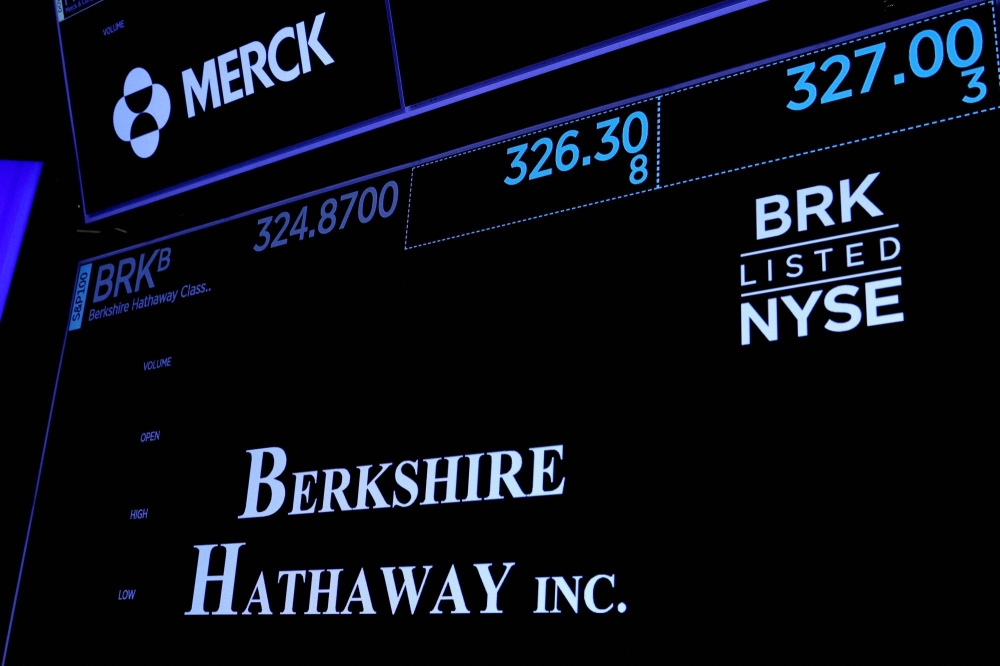When it comes to investment opportunities, Berkshire Hathaway Bonds stand out as a solid and stable option for investors seeking security and reliable returns. Known for being one of the largest and most well-respected companies in the world, Berkshire Hathaway, led by renowned investor Warren Buffett, offers a range of bond investments that appeal to both conservative and long-term investors. If you are considering diversifying your portfolio or looking for a safer investment during volatile market conditions, understanding the ins and outs of Berkshire Hathaway Bonds is essential.
In this comprehensive guide, we will delve into what Berkshire Hathaway Bonds are, how they compare to other bond types, their risk profile, and why they could be a valuable addition to your investment strategy.
What Are Berkshire Hathaway Bonds?
Berkshire Hathaway Bonds are debt securities issued by Berkshire Hathaway, Inc., a conglomerate holding company that owns a diverse portfolio of businesses and subsidiaries across industries like insurance, energy, railroads, and more. Essentially, when you invest in these bonds, you are lending money to the company in exchange for regular interest payments over a specified period. At the end of the bond term, Berkshire Hathaway will repay the principal amount of the loan.
Bonds, in general, are categorized into corporate bonds, government bonds, and municipal bonds. Berkshire Hathaway Bonds fall under the corporate bond category since they are issued by a corporation, not a government entity. Corporate bonds tend to offer higher returns than government bonds but carry more risk due to the nature of the issuing entity’s financial health. However, given Berkshire Hathaway’s strong credit rating and financial stability, its bonds are considered relatively low risk compared to other corporate bonds.

Why Invest in Berkshire Hathaway Bonds?
There are several reasons why Berkshire Hathaway Bonds may be an attractive investment option:
- Financial Strength: Berkshire Hathaway is one of the most financially stable companies in the world, boasting a large reserve of cash, a strong balance sheet, and a diverse portfolio of businesses that generate consistent profits. This financial stability makes Berkshire Hathaway a reliable issuer, reducing the risk of default on its bond payments.
- Consistent Returns: Berkshire Hathaway Bonds provide regular interest payments, making them appealing for income-focused investors. These bonds can offer higher yields than U.S. Treasury bonds while still maintaining a relatively low risk profile due to Berkshire’s robust financial standing.
- Diversification: Investing in bonds, particularly Berkshire Hathaway Bonds, adds a layer of diversification to an investor’s portfolio. While stocks can be volatile, bonds tend to provide more stability, especially during periods of market uncertainty. By holding bonds alongside stocks, investors can reduce their overall portfolio risk.
- Investment Security: Bonds issued by companies with high credit ratings, like Berkshire Hathaway, are seen as safer investments compared to lower-rated corporate bonds. Standard & Poor’s, Moody’s, and Fitch Ratings are three major credit rating agencies, and Berkshire consistently maintains high credit ratings from these agencies, which reinforces the security of its bonds.
How Do Berkshire Hathaway Bonds Work?
Berkshire Hathaway Bonds function like other corporate bonds, with a few specifics that make them unique. When you purchase a bond, you are agreeing to lend money to Berkshire Hathaway for a fixed period, typically ranging from five to thirty years. In return, Berkshire Hathaway agrees to pay you interest on your loan, known as the bond’s “coupon rate.” This interest is usually paid semi-annually, providing investors with a regular income stream.
At the end of the bond’s term, also known as the “maturity date,” Berkshire Hathaway will return the initial investment amount, or “face value,” to the bondholder. The interest rate offered by Berkshire Hathaway Bonds may vary depending on the term length, market conditions, and the company’s financial outlook at the time of issuance.
Risk Profile of Berkshire Hathaway
While Berkshire Hathaway Bonds are considered safer than many other corporate bonds, no investment is entirely risk-free. It’s important to evaluate the risk factors associated with bonds before investing.
- Interest Rate Risk: Bonds are sensitive to changes in interest rates. When interest rates rise, the market value of existing bonds tends to fall because new bonds will likely offer higher interest rates, making older bonds less attractive. Therefore, if you decide to sell your Berkshire Hathaway Bonds before they mature, you may receive less than their original face value.
- Inflation Risk: Inflation erodes the purchasing power of money over time. If inflation rises significantly, the fixed interest payments from Berkshire Hathaway Bonds may lose value in real terms, potentially reducing the bond’s attractiveness to investors.
- Credit Risk: Although Berkshire Hathaway has an excellent credit rating, corporate bonds are not completely immune to credit risk. If the company’s financial health deteriorates unexpectedly, there is a possibility of default. However, given Berkshire’s history of financial strength, this risk is considered minimal.
- Liquidity Risk: Corporate bonds may not always be as easily bought or sold as stocks, which can lead to liquidity issues. While Berkshire Hathaway Bonds are generally more liquid due to the company’s reputation, it’s still important to consider this factor, especially if you need quick access to your investment funds.

How to Buy Berkshire Hathaway Bonds
Investing in Berkshire Hathaway Bonds is relatively straightforward, but it does require some knowledge of the bond market and access to the right platforms.
- Brokerage Account: The most common way to buy bonds is through a brokerage account. Many online brokerage firms offer a wide range of corporate bonds, including Berkshire Hathaway Bonds. It’s important to compare fees and commissions, as these can impact your overall returns.
- Bond Funds: If you prefer a more hands-off approach, you can invest in bond funds that hold a diversified portfolio of corporate bonds, including Berkshire Hathaway Bonds. Bond funds allow you to pool your money with other investors, which can provide broader diversification and professional management.
- Direct from the Issuer: Some bonds may be available for purchase directly from the issuing company, though this is less common for individual investors. However, when Berkshire Hathaway issues new bonds, there may be opportunities to buy them through your financial advisor or investment bank.
Berkshire Hathaway Bonds vs. Stocks
For many investors, the decision between buying bonds or stocks comes down to risk tolerance and investment goals. While stocks have the potential for higher returns, they also come with higher volatility. In contrast, bonds, including Berkshire Hathaway Bonds, offer lower risk and provide predictable income through interest payments.
- Income vs. Growth: If your goal is to generate consistent income, bonds are often the better choice. Stocks, on the other hand, are more suitable for investors looking for capital appreciation over the long term.
- Risk Tolerance: Investors with a low risk tolerance may prefer bonds because they are less volatile than stocks. Berkshire Hathaway Bonds are particularly attractive for conservative investors who prioritize the safety of their principal.
- Diversification: Many investors choose to hold a mix of both stocks and bonds to achieve diversification. This can reduce portfolio volatility and protect against major losses during market downturns.

Conclusion: Are Berkshire Hathaway Bonds Right for You?
Investing in Berkshire Hathaway Bonds can be a smart move for those seeking stability, predictable income, and exposure to one of the most financially secure companies in the world. With high credit ratings and a proven track record of success, these bonds offer a relatively low-risk investment opportunity, especially compared to other corporate bonds.
However, as with any investment, it’s important to assess your own financial goals, risk tolerance, and market outlook before committing to Berkshire Hathaway Bonds. By doing so, you can determine whether this investment aligns with your overall strategy and provides the long-term benefits you’re seeking.
In conclusion, Berkshire Hathaway Bonds represent a reliable and steady option for investors who want to balance risk with reward. Whether you’re new to investing or looking to diversify an existing portfolio, these bonds could be a valuable addition to your financial plan.
Author: Albert Stellar
Follow us on Youtube: The Investors Community



